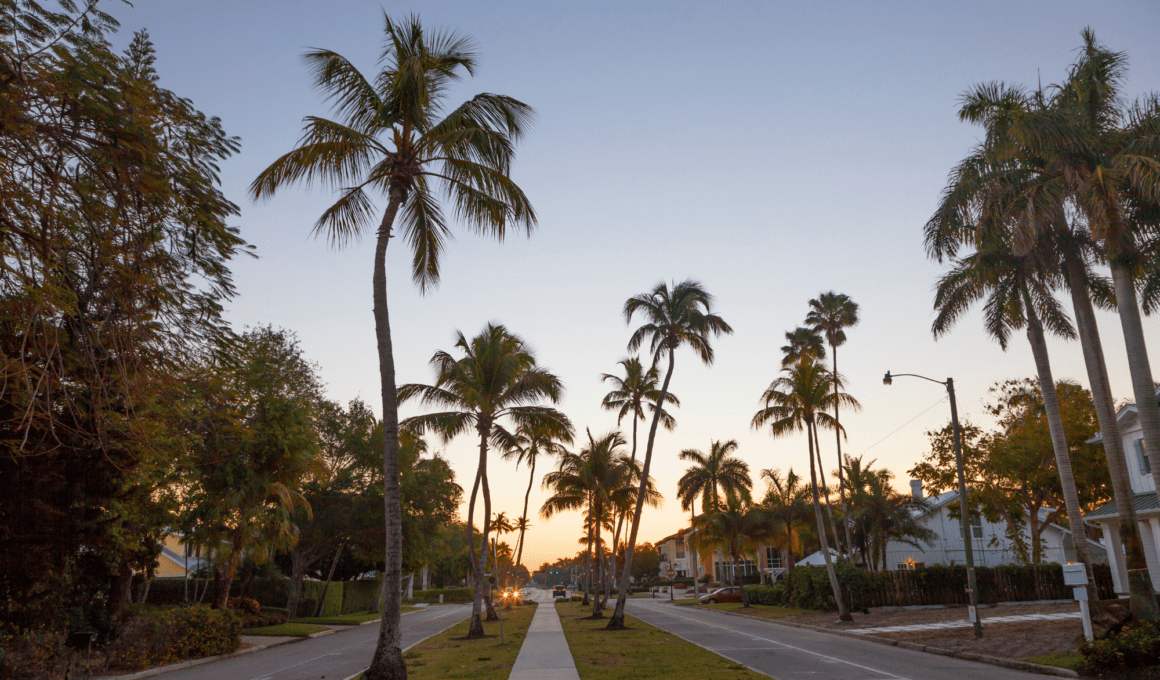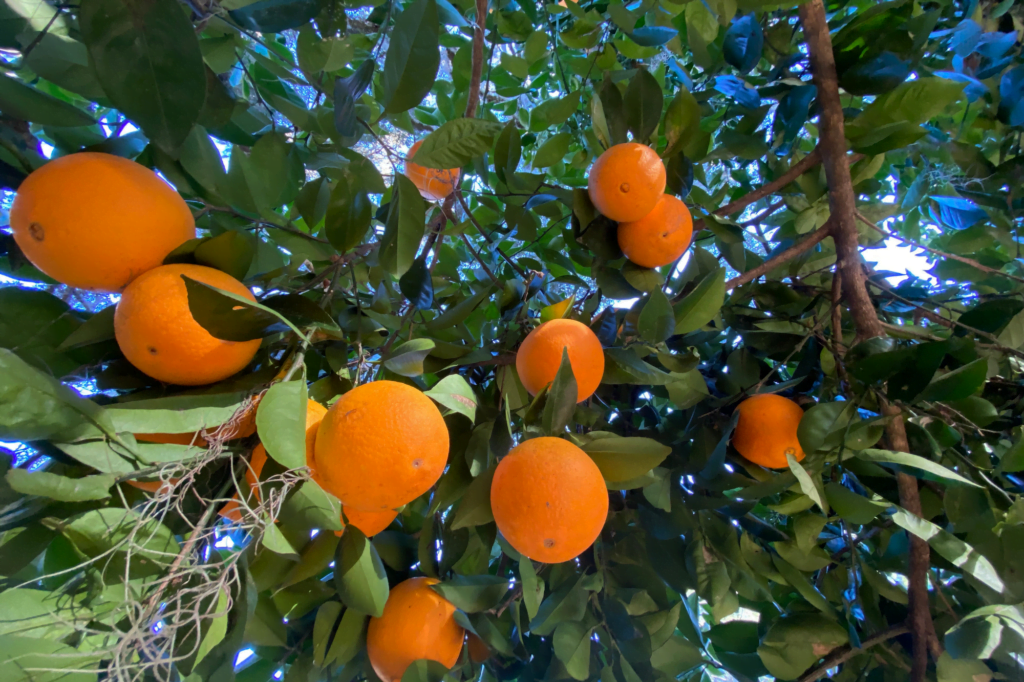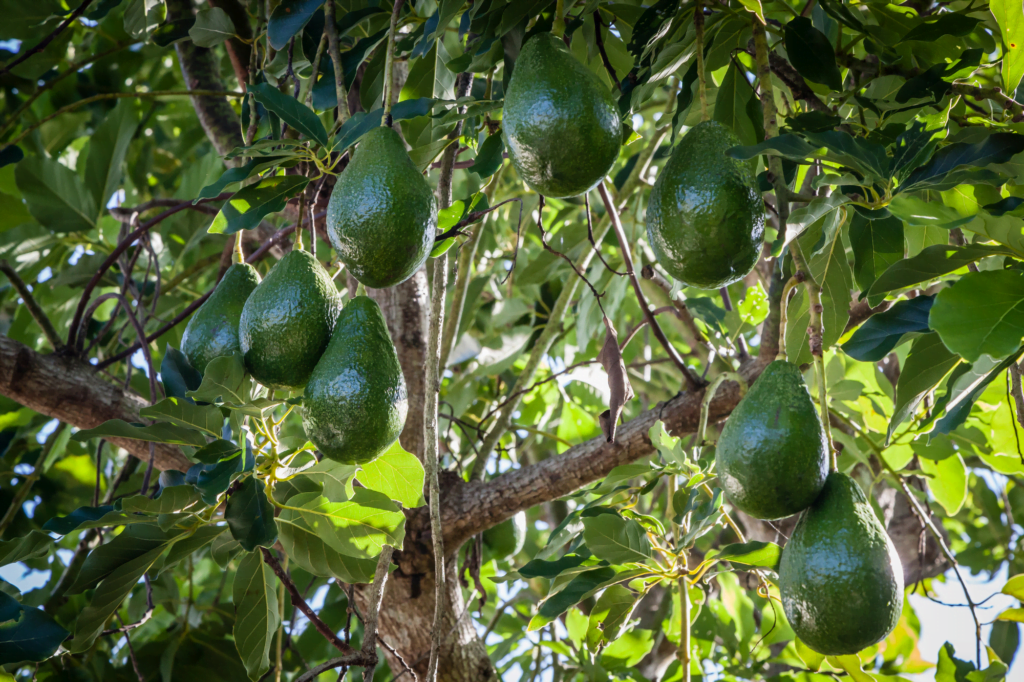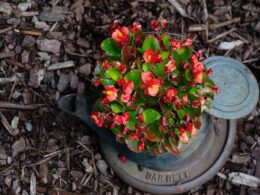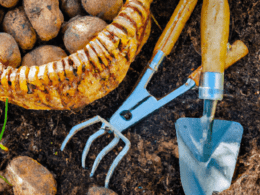Florida’s warm climate and fertile soil make it an ideal location for growing fruit trees. Whether you’re a seasoned gardener or a beginner, there are many types of fruit trees that you can choose from to create a beautiful and productive garden.
In this article, we will explore the different types of fruit trees that thrive in Florida and provide you with a guide to growing and caring for them.
Florida is known for its diverse selection of fruit trees, including both native and exotic varieties. The state’s tropical climate is perfect for growing fruits that cannot be grown in other parts of the country. From citrus trees and avocado trees to mango trees and papaya trees, there are many different types of fruit trees to choose from in Florida.
When selecting fruit trees for your garden, it is important to consider the specific needs of each type of tree. Some trees may require more sunlight than others, while others may need more water or fertilizer. By choosing the right fruit trees for your garden and giving them the care they need, you can enjoy a bountiful harvest of fresh, delicious fruit.
Florida Native Fruit Trees
Florida is home to a diverse range of native fruit trees that have adapted to the state’s unique climate and soil conditions. These trees offer a delicious and sustainable option for home gardeners and farmers alike.
One of the most iconic Florida native fruit trees is the prickly pear cactus. This plant produces edible fruit, also known as tunas, which have a sweet and slightly tart flavor. The prickly pear cactus is a hardy plant that can thrive in poor soil and low water conditions, making it a great option for gardeners looking for low-maintenance fruit trees.
| Fruit Tree | Native to Florida |
|---|---|
| Prickly pear cactus | Yes |
| Papaya | No, but it grows well in Florida |
| Coconut | No, but it grows well in Florida |
Another native fruit tree that thrives in Florida is the surinam cherry. This tree produces small, cherry-like fruit that has a tart flavor. It is a hardy tree that can tolerate drought and salt spray, making it a popular choice for coastal gardens.
The Florida strangler fig is another unique native fruit tree that produces sweet, fig-like fruit. This tree is known for its unique growth habit, where it begins its life as an epiphyte, growing on top of other trees before eventually sending roots down to the ground and taking over as the main tree.
Overall, Florida’s native fruit trees offer a range of options for home gardeners and farmers looking to grow delicious and sustainable fruit trees. With unique flavors and growth habits, these trees are an important part of Florida’s agricultural heritage.
Citrus Trees in Florida
Citrus trees are a popular choice for Florida gardeners due to their versatility and suitability to the region’s climate. The most commonly grown citrus trees in Florida include oranges, lemons, limes, grapefruits, and tangerines.
Florida is the second-largest producer of citrus fruits in the United States, and citrus trees are an essential part of the state’s economy and agricultural history.
There are many varieties of citrus trees available, each with its unique flavor, appearance, and growth habits. For example, Valencia oranges are known for their sweet juice and are typically harvested in the late spring and early summer. Meyer lemons, on the other hand, are smaller and rounder than traditional lemons and have a sweeter and less acidic taste, making them an ideal ingredient in cooking and baking.
When planting citrus trees in Florida, it is important to choose a sunny location with well-draining soil. Citrus trees require regular watering and fertilization, especially during the warm summer months. Different citrus varieties have their maintenance requirements, so it’s important to research the specific needs of your chosen citrus tree to ensure healthy growth and successful fruit production.
Citrus greening disease, a bacterial infection that affects citrus trees, has been a significant concern for Florida’s citrus industry in recent years. It is essential to monitor your trees for any signs of disease or pests and take appropriate steps to control and prevent the spread of infection.
Overall, citrus trees are an excellent addition to any Florida garden, providing a source of fresh, nutritious fruit and the opportunity to contribute to the state’s rich agricultural heritage.
Avocado Trees in Florida
Avocado trees are an excellent addition to any Florida garden. With the right care, they can produce bountiful crops of delicious and nutritious fruit.
There are many avocado varieties suitable for Florida’s climate, but the most commonly grown are the ‘Choquette’, ‘Simmonds’, and ‘Lula’. These varieties are known for their ability to thrive in Florida’s warm and humid conditions, and they produce large and flavorful fruit.
If you’re planning to grow avocado trees in Florida, it’s essential to ensure they receive adequate water and drainage. Avocado trees require consistent moisture to develop healthy fruit, so make sure to water them deeply at least once a week. However, it’s vital to avoid overwatering, as this can lead to root rot and other diseases.
Another crucial factor in growing avocado trees in Florida is providing them with proper nutrition. It’s crucial to fertilize avocado trees regularly to ensure they receive the necessary nutrients to develop healthy fruit. Experts recommend using a slow-release fertilizer with a balanced N-P-K ratio to promote healthy growth and fruit production.
| Benefit | Tip |
|---|---|
| Pruning | Avocado trees require minimal pruning. Only prune to remove damaged or diseased branches and to shape the tree. |
| Pest control | Avocado trees are susceptible to pests such as mites and thrips. Regular pest control measures such as using insecticide and natural predators can help to keep them at bay. |
With proper care, your avocado tree can produce fruit in as little as two years. The fruit will mature and ripen on the tree, and you can harvest it when it starts to soften.
Overall, avocado trees are an excellent addition to any Florida garden. They are relatively easy to grow and provide delicious and nutritious fruit that’s perfect for a variety of recipes and snacks. With the right care, your avocado tree can thrive and produce a bountiful harvest for years to come.
Mango Trees in Florida
Mangoes are a popular fruit tree in Florida, known for their delicious taste and sweet aroma. There are many different varieties of mangoes that thrive in the state’s tropical climate, each with its own distinct flavor and texture. Some of the most popular varieties in Florida include the Tommy Atkins, Haden, and Keitt mangoes.
Mango trees require a lot of sunlight, so it’s important to plant them in an area that receives at least six hours of direct sunlight each day. They grow best in well-draining soil that is rich in organic matter. Mango trees should be watered deeply and regularly, especially during their first few years of growth.
To ensure a bountiful harvest, mango trees should be pruned regularly. This helps to promote healthy growth and can prevent disease and pest problems. Mango trees should also be fertilized regularly, with a balanced fertilizer that is high in nitrogen, phosphorus, and potassium.
If you want to grow mango trees in Florida, it’s important to choose the right variety for your garden and to provide them with the care they need to thrive. With the right growing conditions and proper maintenance, you can enjoy a delicious harvest of fresh, juicy mangoes from your very own backyard.
“Mangoes are a delicious and nutritious tropical fruit that can be grown in Florida with proper care and attention.”
FAQs About Fruit Trees in Florida
Growing fruit trees in Florida requires knowledge and care to ensure a successful harvest. Here are some of the most frequently asked questions about fruit trees in Florida:
What’s the best time to plant fruit trees in Florida?
The ideal time to plant fruit trees in Florida is during the dormant season, which is typically from December to February. The cooler temperatures and reduced sunlight during this time help the trees establish roots without the added stress of fruit production. However, some fruit trees, such as citrus trees, can be planted year-round if proper watering and fertilization are provided.
What’s the ideal soil for growing fruit trees in Florida?
The ideal soil for growing fruit trees in Florida is well-drained soil with a pH of 5.5 to 6.5. It should be rich in organic matter and nutrients such as nitrogen, phosphorus, and potassium. Adding compost and other organic materials to the soil can improve its structure and fertility, which will promote healthy tree growth and fruit production.
What are some common pests and diseases that affect fruit trees in Florida?
Fruit trees in Florida are susceptible to pests such as mites, aphids, and citrus leaf miners, as well as diseases such as citrus greening and canker. Regular monitoring and treatment with pesticides and fungicides can help prevent these issues. Additionally, pruning diseased or damaged branches, maintaining proper irrigation and fertilization, and using disease-resistant tree varieties can also help reduce the risk of pests and disease.
What are some tips for pruning fruit trees in Florida?
Pruning fruit trees in Florida is essential for maintaining their health and promoting fruit production. It’s best to prune during the dormant season when the trees are not actively growing. Use clean, sharp tools and make cuts at a 45-degree angle just above a bud or branch. Remove any dead or damaged branches, as well as any that cross or compete with other branches. Prune to maintain an open center or vase shape, which allows for better sunlight penetration and air circulation.
What are some of the best fruit trees for home gardens in Florida?
There are many fruit trees that are well-suited for home gardens in Florida, including citrus trees (such as oranges, lemons, and limes), avocado trees, mango trees, papaya trees, and fig trees. These trees are relatively easy to grow and maintain, and they produce delicious and nutritious fruit that’s perfect for Florida’s tropical climate.
By following these tips and guidelines, you can successfully grow and enjoy a variety of fruit trees in your Florida garden.





